Walk on the wild side of South Africa
To go on an African safari is to get up close and personal with majestic animals

A giraffe can clean its ears with its tongue. Baby elephants drink their mothers’ milk for two years. Lions roar to mark their territory and connect with the rest of their pride.
Logically, it shouldn’t be the case; but facts about animals become far more impressive when you experience them in person.
When you watch a giraffe lick the leaves off a thorny acacia branch as effortlessly as you would strip a sprig of thyme with two fingers.
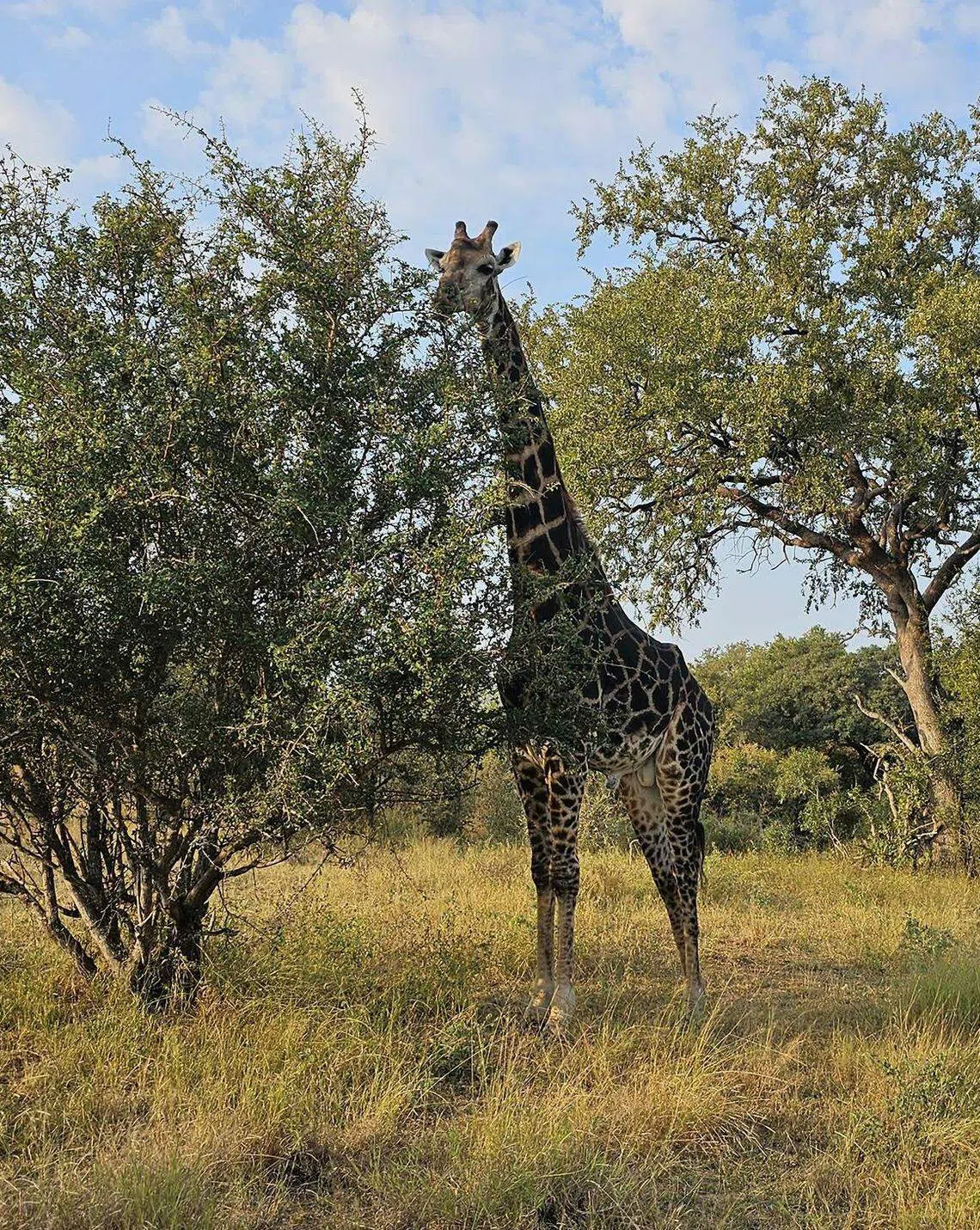
When you laugh at the four-month-old elephant calf swinging its trunk in the grass but picking up nothing.
When you hear a lion and a lioness roaring, not five metres from your face.
In May this year, I made a trip to the South African savannah.
GET BT IN YOUR INBOX DAILY

Start and end each day with the latest news stories and analyses delivered straight to your inbox.
A safari is something that is on the bucket list of many, as I found out after I started planning my visit. Many friends said they had always wanted to go, but that it seemed far less accessible than other popular destinations such as Japan, South Korea, or even Britain.
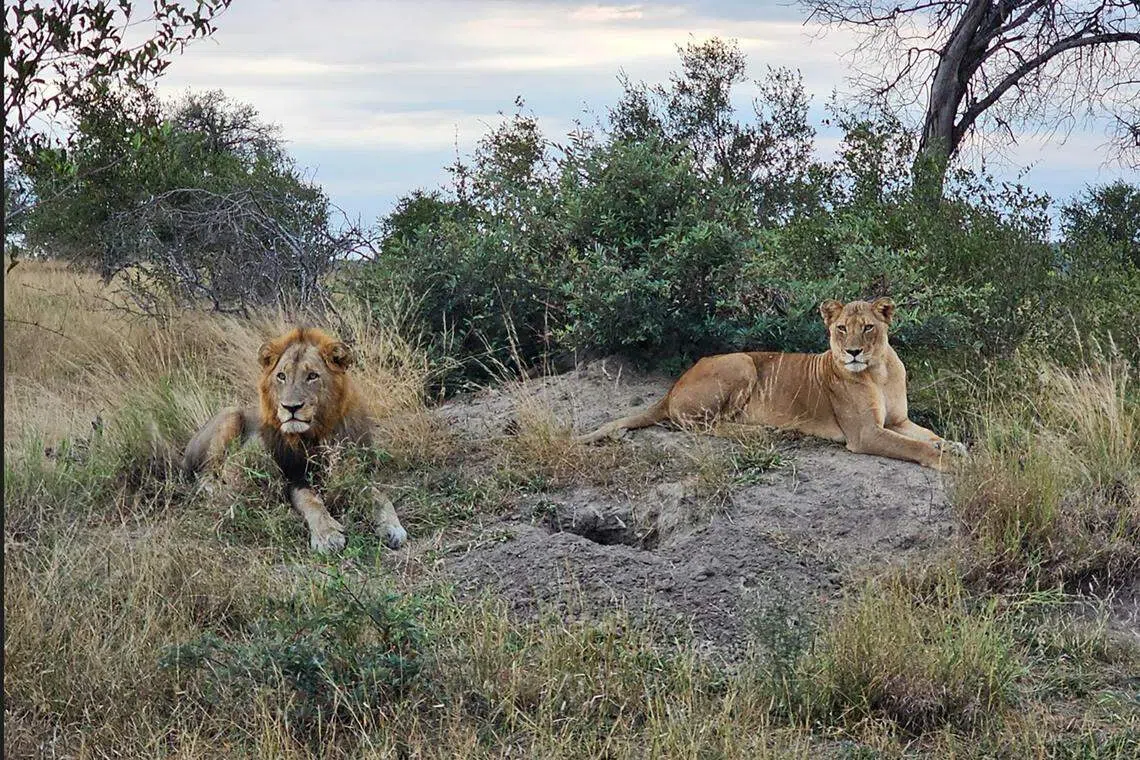
Most are surprised when they hear that Johannesburg’s OR Tambo International Airport is only a 10-hour flight from Changi.
Of course, more travelling follows. From Johannesburg, you have to board a propeller plane for a one-hour flight to the Timbavati Private Nature Reserve.
In between, there is a lot of waiting time. So, yes, it is true that an African safari has a greater element of inconvenience. But I never complain about extra reading time when I’m on holiday.
Life of leisure
Besides, if you think there’s going to be a lot of free time for reading when you’re on safari, think again.
Animals are more active early in the morning and in the evening, when the air is cool. Our morning calls are at 5.30 am, and we begin to be jogged about in open-top four-by-four vehicles before 6 am.
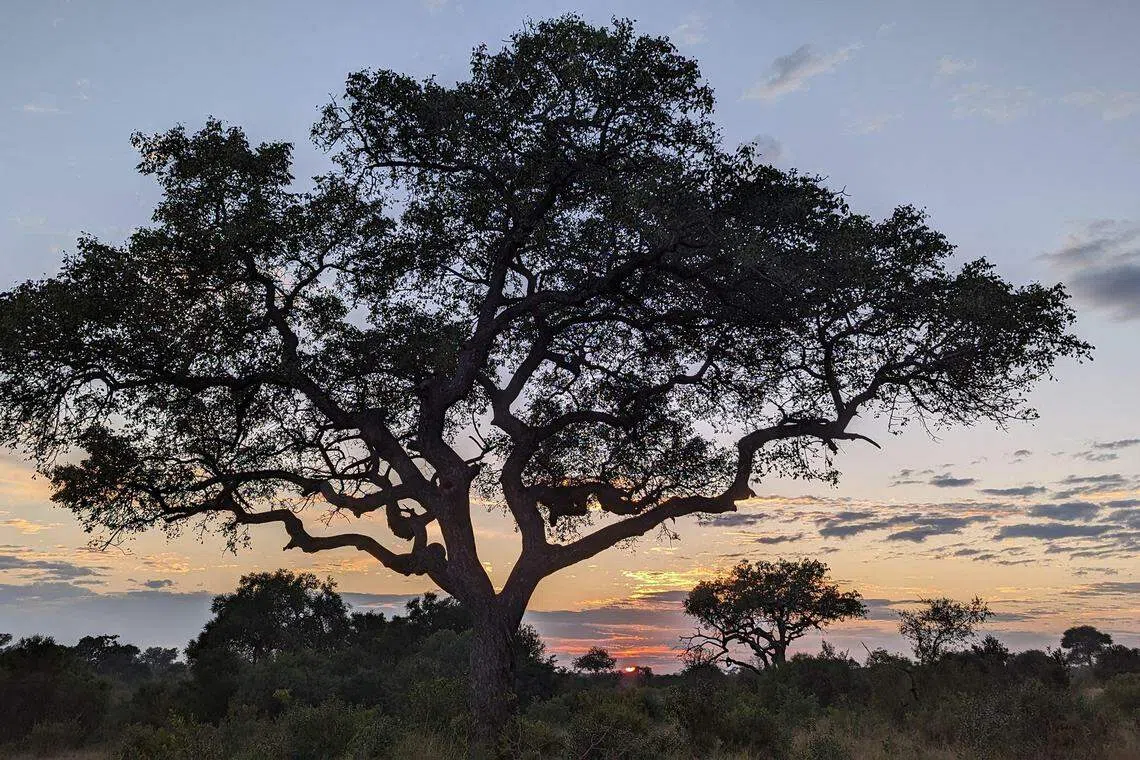
After a three-hour drive, you return, eat breakfast, lounge about, eat lunch, lounge about some more, then go for a second drive at 3.30pm. This is followed by dinner at 8pm, and the next day the cycle repeats.
I find, however, that I am frequently distracted: pausing my yoga on the deck to photograph the elephant that has decided the leaves at our window will be tastier than the ones by the road; and ditching my poached eggs because the nyala in the lodge have decided they would like a fight.
I do not mind, although my husband thinks I should be more circumspect about how close I get to antelope with long, sharp horns.
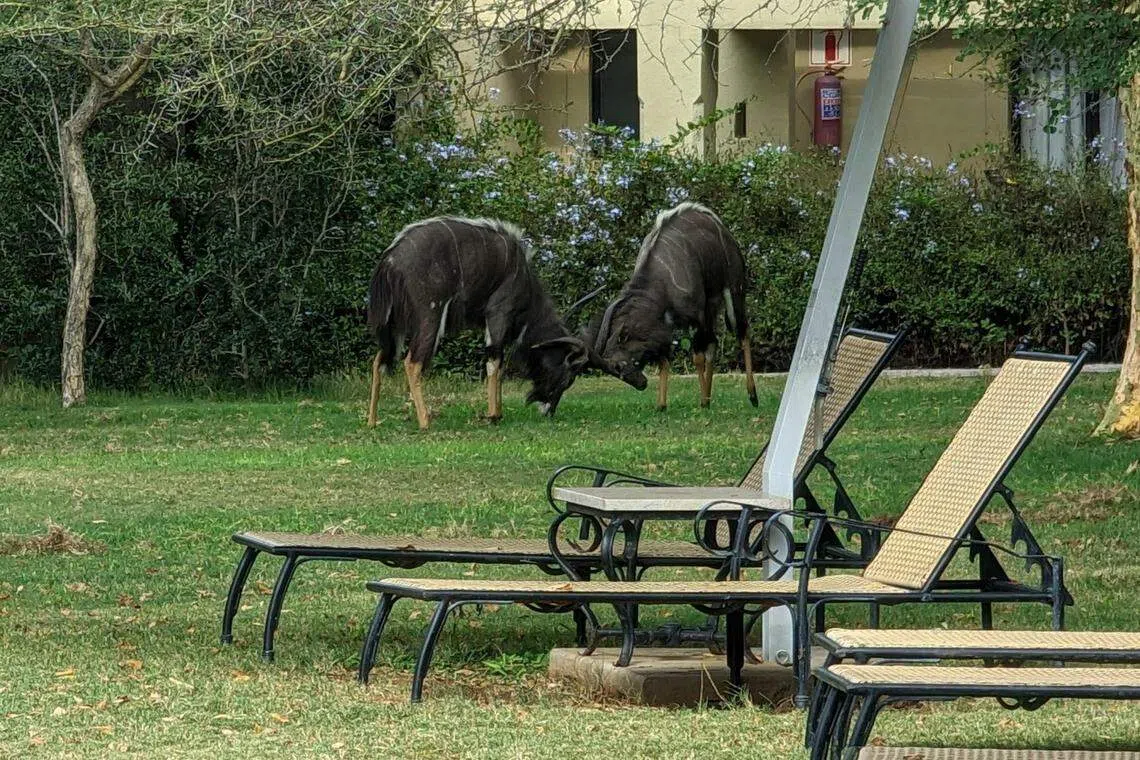
It is difficult for me to remember that these animals are dangerous. The ones that are disturbed by your presence will run off before you can get near; the ones that don’t could kill you easily but just don’t seem interested.
A leopard strolls centimetres from our vehicle. Elephants seem to play a game of chicken, coming right up to us and turning away at the last second. A pride of lions that has just gorged on a zebra lies on the sand surrounding us, only to scatter when an elephant approaches.
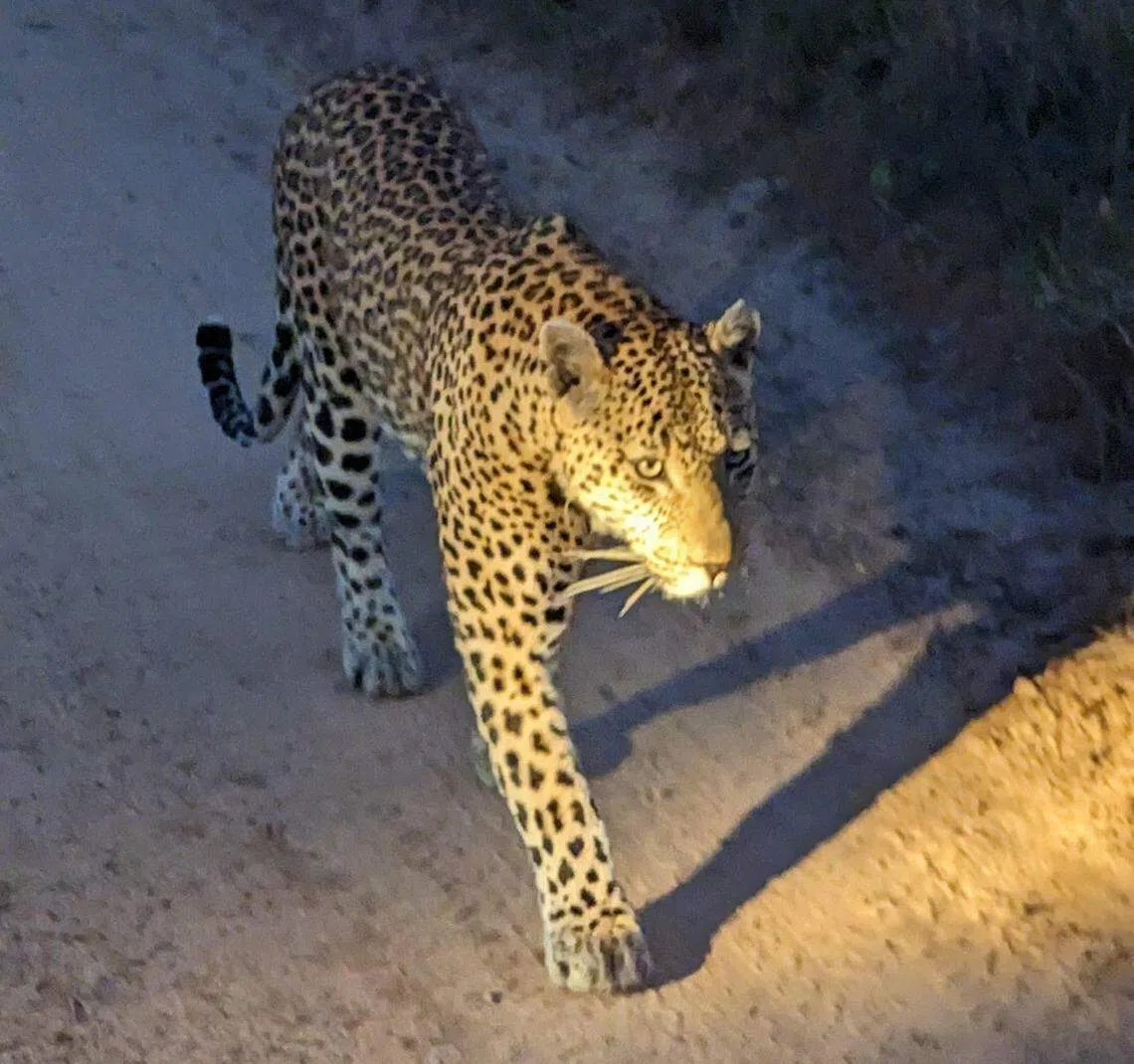
Once in a while, though, there come a few reminders.
When three full-grown male Cape buffalo bolt from us, and we ask our guide if we can give chase, he shakes his head: “We never chase animals that run from us, because you don’t know when they will turn around.”
A herd of elephants we are watching suddenly huddle together and head off briskly into the brush. Again, our guide says we cannot see what they are up to.
And when two male rhinos decide to have a fight over territory in our path, we are stuck behind them for some time because we don’t want to be in their way if they charge.
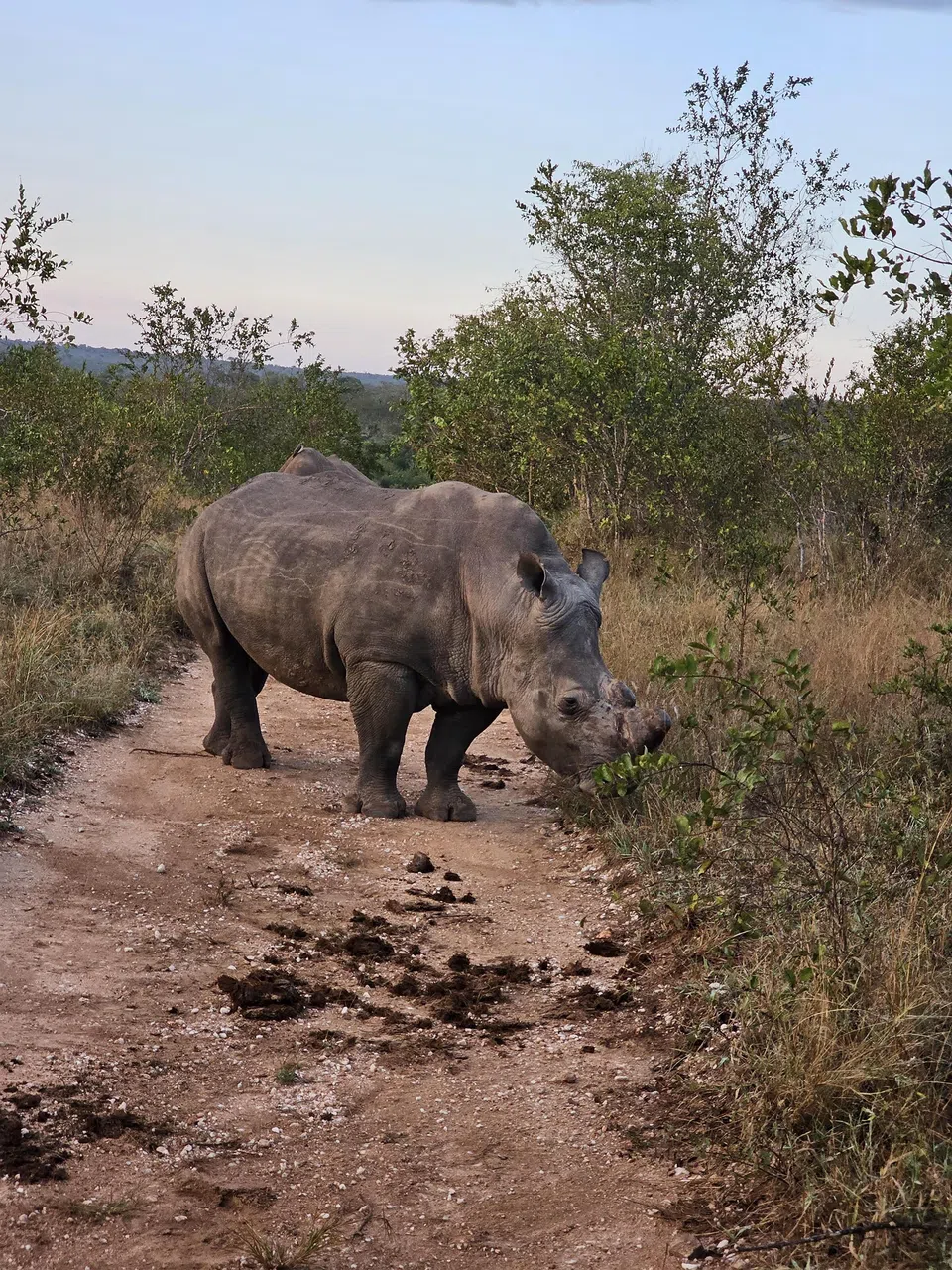
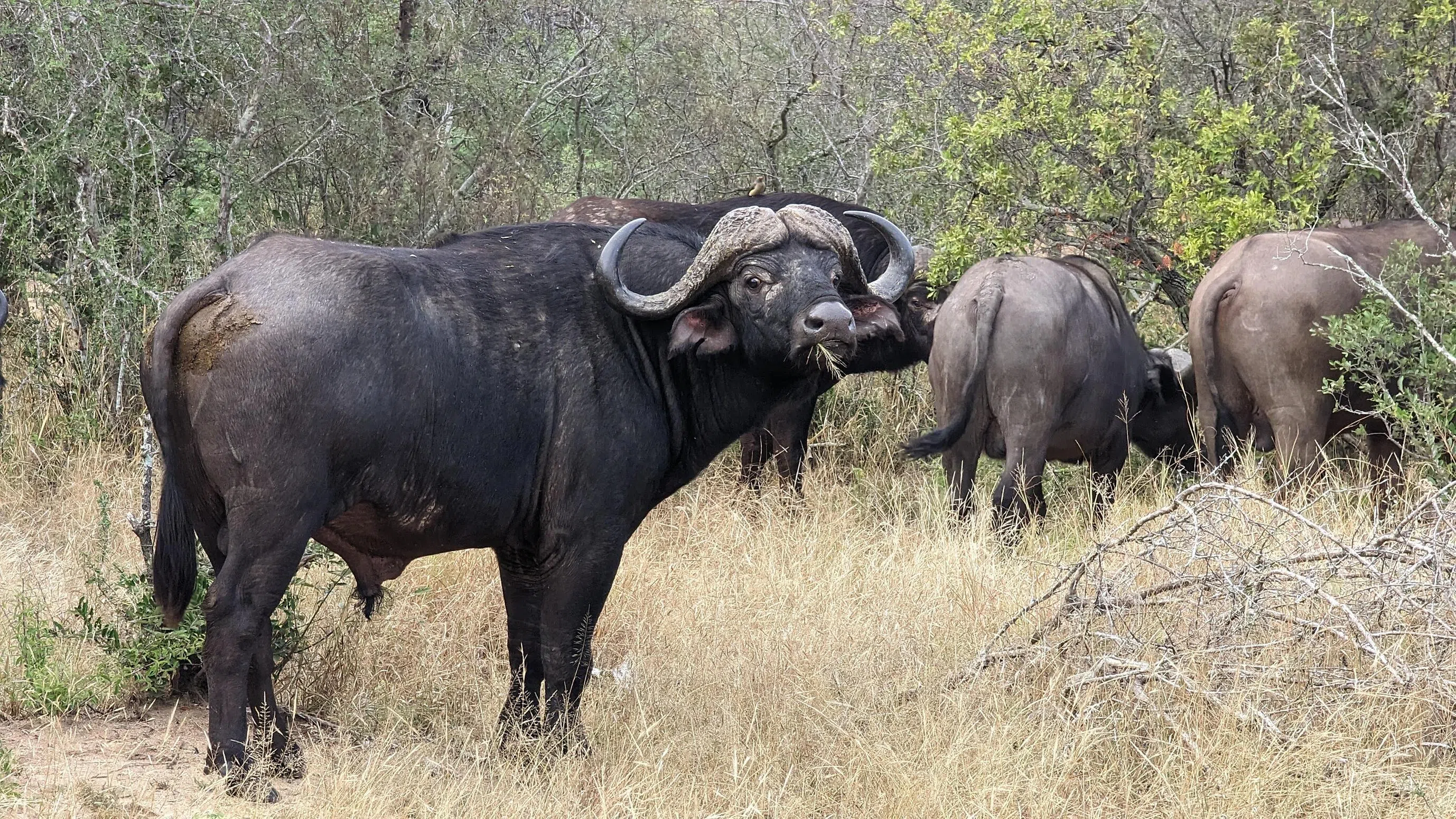
Unnatural nature
I think all countries are beautiful, when you are on holiday. But I also think the South African savannah produces the most beautiful dawn and dusk landscapes I have ever seen.
Maybe that’s because this is the only trip during which I have been awake at both dawn and dusk each day.
We had one overcast morning and one rainy evening while I was there, which I was told is highly unusual weather for the month of May.
On all the other days, I couldn’t resist new attempts to photograph the pink wash spreading over the tips of the marula trees.
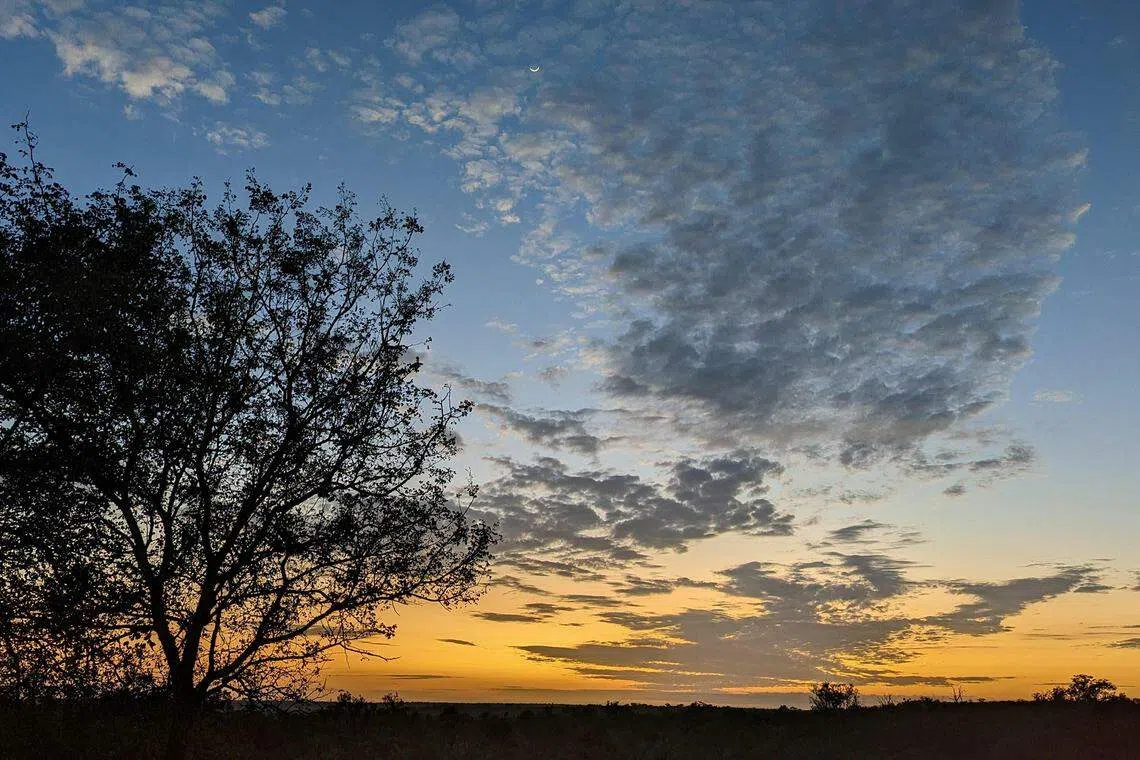
This idyll of natural beauty, green bush turning into brown and gently grazing animals is, ironically, quite unnatural.
I am jolted into this realisation several times a day when the power cuts out.
South Africa has been suffering through an energy crisis since 2007. Several times a day, the electricity supply is cut – a phenomenon referred to locally as loadshedding.
Where tourists are, in sheltered pockets of serenity, the generator kicks in within seconds.
On the roads, it is chaos as the traffic lights stop working.
On our one night in Johannesburg, we dine at a restaurant in the hipster hotspot of Maboneng. The wait staff are ready with their candles when the loadshedding kicks in.
We have invited the guide driving us through the city to share our meal.
He tells us that his third generator recently broke down, and he has decided he won’t be buying a new one. He is saving money to buy a solar panel instead, as he doesn’t see the government resolving the problems with the national grid any time soon.
As we cross from the tidy streets of Houghton, best known as Nelson Mandela’s last residence, into the crowded streets of Hillbrow, where it looks as if the rubbish trucks have forgotten to come by, I worry that in my quest to commune with nature I have neglected to plan some of my trip around an understanding of the local community.
Sandton, where my Johannesburg hotel is located, is the continent’s richest square mile. Johannesburg is said to have the most millionaires in Africa.
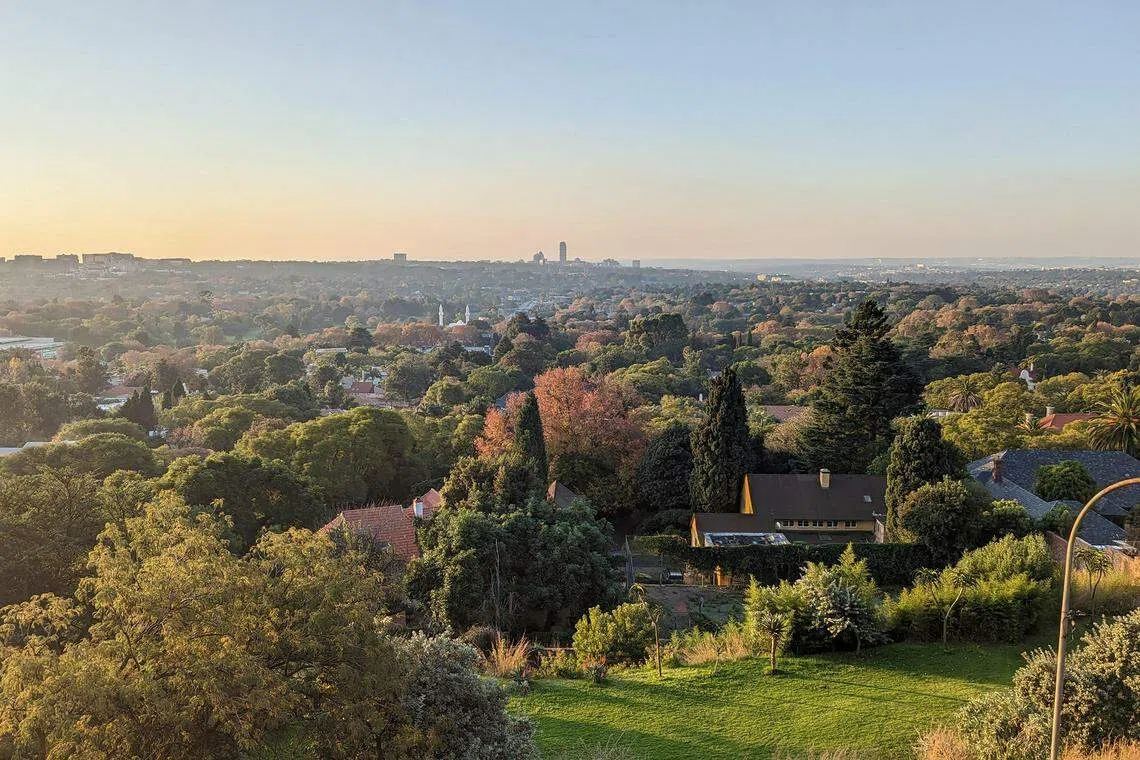
Meanwhile, South Africa’s economic contraction in the fourth quarter of last year was greater than all economists’ forecasts. And its loadshedding in Q4 was greater than the electricity rationing experience in any full year on record in South Africa.
These are facts you can look up and read about; they make quite a different impression when you experience them in person.
BT is now on Telegram!
For daily updates on weekdays and specially selected content for the weekend. Subscribe to t.me/BizTimes
BT Luxe
Private helicopter wine tours, coastal golf and indulgent spas: Luxe escapes to elevate your next vacation
Charmain Kwee: Steering a car empire at 27
Vacheron Constantin breaks record for most complicated watch
From safari bush retreats to coastal havens: These Top End stays offer the perfect blend of wilderness and luxury
Lee Hui Li: Empowering women, embracing change
Tan Min Lan: Deftly navigating the complexities of leadership
